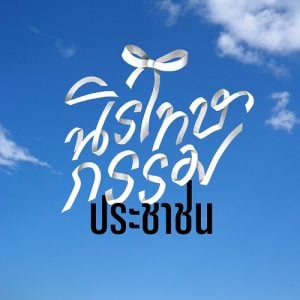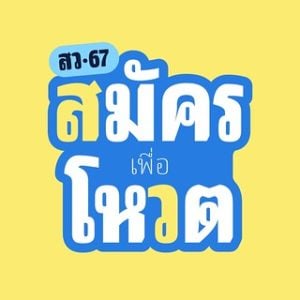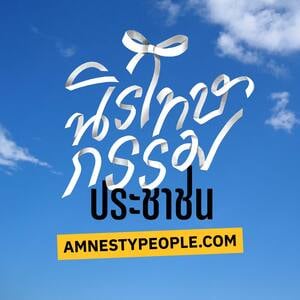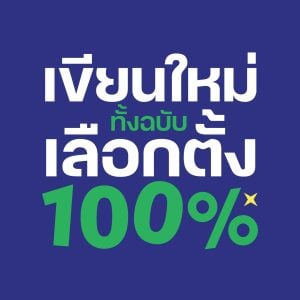Time flies as the year 2013 is drawing to a close. Just from January until October this year, it shows a sign of sheer fluctuation of freedom of expression in Thailand. Some prisoners of conscience have been released, either via being granted bail or being acquitted or pardoned, several new cases have, however, emerged. Some politically motivated cases should have ended as the police decided against pressing the charges, or because the cases had been dismissed by the Lower Court, but the Office of Attorney General (OAG) decided to request the police to reconsider and proceed with the prosecution, or to appeal the case. It turns out that “all” verdicts made by the Courts of higher instances tend to reverse the Trial Court’s orders to convict the defendants.
Blockade of website access, media censorship, warning against media, inquiry being imposed on media featuring issues sensitive to national security, and defamation litigation against media tend to have happened time and again. The issues concerning freedom of expression have been far from being resolved, as their root cases, the many draconian laws and policies have been left intact. This report is an attempt to review cases in 2013 (from January to October) and is part of an effort to the production of the complete volume of Freedom Report to be published in April 2014
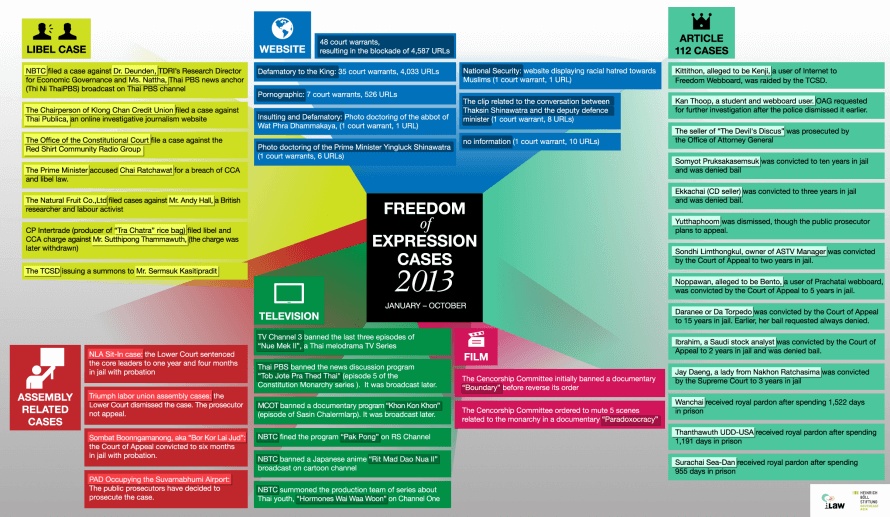
Blocking and banning media
Blockade of website access in Thailand is proudly considered a masterpiece by the Ministry of Information and Communication Technology (MICT). From January to October this year, MICT has requested 48 court warrants to block the access resulting in the blockade of 4,587 URLs, 88% of which were considered defamatory to the King (lèse majesté).
The 2013’s website blockade was different from previous years, though. The number of URLs being requested for in each warrant tends to reduce markedly, i.e. down to dozens or not more than 600 URLs per warrant. Compared to a couple of years back, each warrant resulted in the blockade of thousands of URLs. Nevertheless, a clause attached to the new warrants issued by the Court for blocking the websites make them different from previous year. The clause indicates that if similar data and/or text are found to have been input into other computer system again, and if either the data or text are not dissimilar to the URLs already blocked by the existing court warrants, it is not necessary for the competent officials seek permission from the Court again, and they can thereby block the content by themselves.
The situation of broadcasting media is worth the watch. It was the year the National Broadcasting and Telecommunications Commission (NBTC) has exerted their sheer power on issues. In this year, either the owners of the TV stations ordered “absolute ban” on certain of their contents or ordered the delay of the broadcasting, or the NTBC invoked Article 37 to fine TV stations for breach of the legal clause which define the type of contents allowed for broadcasting.
Since early this year, “Nue Mek II”, a Thai melodrama TV series, was banned, reportedly, because its contents were related to some politicians. The last three episodes were all of a sudden prohibited from broadcasting by TV Channel 3 itself. Later in March, the news discussion program “Tob Jote Pra Thed Thai” on “Thailand’s Constitutional Monarchy 5” was banned by the executives of Thai PBS after some protests by people who claimed the program featured issues critical to the monarchy. The program was, however, later broadcast. Similarly, a documentary program “Khon Kon Khon” on “Sasin Chalermlarp’s 388 kms from forest to city” was banned by MCOT which claimed that the program featured one-sided story and might cause conflicts. The program was also allowed to broadcast later anyway.
Apart from the self-censorship imposed by the executives of TV channels themselves, the National Telecommunications Commission under National Broadcasting and Telecommunications Commission (NBTC) also exercised their power on instances. First, it fined the program “Pak Pong” broadcast on RS Channel 500,000 baht for the broadcast of an interview of an autistic child who was raped by her own teacher, as NBTC claimed the contents were not appropriate for broadcasting. Second, the Commission issued a statement on a Japanese anime “Rit Mad Dao Nua II” broadcast in cartoon channel for inappropriate scenes and the sanction is being considered. And third, the production team of very popular series about Thai youth, “Hormones Wai Waa Woon” was summoned for a talk with the Commission, but insofar, no directive has been issued.
Drama occurred in Thai cinema as well. For years, Thai movies hardly touched on political issues. But in 2013, at least two of them were related to politics and both faced opposition from the National Film Board. In April a documentary “Boundary” concerning border conflicts between Thailand and Cambodia was initially “banned”. But two days later, the National Film Board reversed its order and affixed “18+” to the flick. Meanwhile, another documentary, “Paradoxocracy” directed by Pen-ek Rattanaruang and Pasakorn Pramoolwong found the mutation of five scenes related to the monarchy, before being affixed with “G” rating.
Article 112 cases: The year of higher courts
Overall, the cases related to the use of the Penal Code’s Article 112 are quite worrying. After the recent political crisis began until 2009-2010, the number of people charged for breaches of Article 112 has skyrocketed. During 2011-2012, several verdicts were issued by the trial court. The year 2013 is the year of higher courts.
Though the release of three prisoners of conscience have received royal pardons (Wanchai, Thanthawuth UDD-USA and Surachai Sea Dan) has somewhat eased the atmosphere, but 2012 saw new prosecutions of such charges related to Article 112. Meanwhile, cases that have been decided as not actionable by the police have been revived by the order from the OAG for further investigation. Similarly, cases already dismissed by the Lower Court have been put on appeal by the public prosecutor. It was also found that in the past year, the higher courts have reversed “all” orders made by the trial courts and convicted the defendants.
New cases of Article 112 this year include the arrest of Mr. Kittithon, a user of Internet to Freedom Webboard, who was raided with 20 truckloads of police officers last August. Meanwhile, cases that have been kept at the police level for years have been revived. For example, the seller of “The Devil’s Discus” who was arrested in 2006 found his case prosecuted by the OAG in August this year. The case against “Kan Thoop”, a high school student and user of a political webboard, who was charged in 2010 and later her case was dismissed by the police, but this year, the OAG asked the police to reconsider the case and to carry out more investigation. Another case against Surachai Sae-Dan, a political activist, who made a public speech in Mae Rim, Chiang Mai in 2011, was also being mulled the Department of Special Investigation (DSI) in July 2013.
As for cases pending in the higher courts, some previous orders have been reserved by the Court of Appeal including the case against Sondhi Lomthongkul, a media firebrand, who was convicted to two years in jail without probation for the speech he made during the rally of the People’s Alliance for Democracy (PAD) a few years ago. He was granted bail. In the case against Noppawan-Bento who was accused of posting defamatory comments against the King in Prachatai webboard was now convicted to five years in jail with no probation by the Court of Appeal. She was also granted temporary release. In another case, the Court of Appeal confirmed the order of the previous court to convict “Da Torpedo” to fifteen years in jail. But she was not granted bail. And in the case against Ibrahim, a Saudi stock analyst, the Court of Appeal convicted him to two years in jail with no probation for spreading news that has caused stock index to nosedive. He was not granted bail.
The Supreme Court issued a verdict in one case, the first of the verdicts made by the highest court on lèse majesté charge in years. It was the order to jail Ms. Pabhatchanan, aka Jay Daeng, a lady from Nakhon Ratchasima for burning a coffin mock-up with a banner written with a clause referring the King. She was convicted to three years in jail, as per the orders made by the two previous courts.
It could be said that all lèse majesté cases pending in the higher courts have resulted in the conviction of the defendants. That the Court of Appeal reversed the order of the trial court and convicted Sondhi Limthongkul and Noppawan-Bento has resurrected the climate of fear in Thailand as far as Article 112 is concerned. The conviction against Sondhi Limthongkul was even deemed as precedence that every rephrasing could be considered an act of lèse majesté without considering the intent of doing so. The Court insisted that since the rephrasing has helped more people to be aware of the defamatory contents, the offence has been made.
As for cases decided by the Lower Court this year, they include the case of Mr. Somyot Pruksakasemsuk who was convicted to ten years in jail and was denied bail, the case against Ekkachai (CD seller) who was convicted to three years in jail and was denied bail. Both cases have been appealed. But the case against Yutthaphoom who was filed with lèse majesté by his own brother was dismissed, though the public prosecutor plans to pursue it to the higher courts.
Libel case, a silencing tool
The invoking of insult law has resulted in the impediment of freedom of expression in various instances. Those becoming victims of such a law include the press, activists and ordinary people. All of those charged were active citizens in social arena, either from government or private sector. Most of the charges result from the invoking of defamation offences as per the Penal Code and a breach of the Computer Crime Act B.E. 2550 (2007).
arious laws and regulations regarding media have given rise to media self-censorship. Meanwhile, they also challenge media to show their brevity in exposing the truths. Prosecutions in the past year expose how vulnerable the whistle blowers including media and academics are the litigation as they are attempting to shed light on truths. It is indeed a threat against the culture of criticism which is guaranteed as a fundamental right and freedom to ensure transparency of either state or private agencies.
Interestingly, the agencies that have initiated the lawsuits against the whistle blowers are highly regarded agencies in society including the National Telecommunications Commission of NBTC which filed a case against Dr. Deunden Nikomborirak, TDRI’s Research Director for Economic Governance and Ms. Nattha Komolvadhin, Thai PBS news anchor (Thi Ni ThaiPBS) broadcast on Thai PBS channel. The litigation against the two persons stemmed from the broadcasting of a news discussion program which criticized how NBTC mishandled the looming termination of license to some mobile phone operators. The case has really shocked the entire realm of mass media and academics.
In another case, the Chairperson of Klong Chan Credit Union filed a case against Thai Publica online investigative journalism website, after it publicized an investigative report on a lack of transparency of the credit union. Of the five members in Thai Publica editorial team, four found themselves hooked up in this legal wrangle. There was also a case initiated by the Natural Fruit Co. against Mr. Andy Hall, a British researcher and activist who published a research that revealed abuse of labour rights in the canned pine apple factory. The presentation of the research findings was made at the Foreign Correspondence Club of Thailand (FCCT). The latter two cases were involved with the use of libel law and CCA.
Another worth the watch is the libel case and contempt of court cases lodged by the Office of the Constitutional Court against the Red Shirt Community Radio Group as the group’s core leaders organized a demonstrations in front of the building of the Court in April lashing out their work. After the lawsuit was filed against them, the core leaders also filed a case back. Several other tit-for-tat cases also ensued after that. It should be noted that in this year, the expression of opinions and belief and the spreading of rumour in online social media including facebook has led to a number of legal cases. Typically, the plaintiffs are influential persons or large corporations including the Prime Minister who filed charges related to a breach of CCA and libel law against “Chai Ratchawat”, a famous cartoonist of Thai Rath after the latter had posted a facebook comment to criticize the PM; CP Intertrade (producer of “Tra Chatra” rice bag) filed cases invoking CCA and libel law against Mr. Sutthipong Thammawuth, producer of “Khon Kon Khon” after the latter posted a status on “rotten rice” (the case was later withdrawn); and the Technology Crime Suppression Division (TCSD) issuing a summonses to Mr. Sermsuk Kasitipradit, political and national security news editor of Thai PBS after the latter posted a status regarding rumour of pending coup claiming that the status could be deemed an offence against CCA and for causing disruption in the country.
Demonstration related cases
Street politics is still a much used venue of self-expression among people. The Constitution guarantees the right to peaceful and unarmed demonstrations, though such a right has failed to prevent people from being held liable.
An interesting case against demonstrators which was decided in 2013 includes the NLA Sit-In case. In 2007, some protesters against the promulgation of laws by the National Legislative Assembly were accused of climbing the front gate of the Parliament building to get inside. This year, the Lower Court found the demonstrators guilty as per the charges and convicted the core leaders to one year and four months in jail and other “accomplices” to eight months with two years of probation. The defendants are now outside on bail and have appealed the case against them.
The case was launched against Triumph labor union assembly who were gathered outside the Government House and the Parliament in 2009 during which they protested the unfair lay-off. Three core leaders were charged for organizing illegal assembly and causing public disruption. The case against the three defendants was dismissed by the Lower Court which claimed that thought demonstration has caused some public disorder, but it was conducted peacefully and proportionate to their cause. The public prosecutors are trying the appeal the case.
In the case stemming from a breach of the Emergency Decree imposed during the mass demonstrations in May 2010, Mr. Sombat Boonngamanong, aka “Bor Kor Lai Jud” was charged for organizing a demonstration under the Ram Intra-Aj Narong Expressway in Bangkok during the time the Emergency Decree was imposed and any political convergence was banned. In 2011, the Lower Court convicted Sombat to six months in jail with probation period. In last August, the Court of Appeal confirmed the order of the previous court.
As for updates on the previous cases against demonstrators, the public prosecutors have decided to prosecute the PAD demonstrators for their occupying the Suvarnabhumi Airport in 2008.
Overall, it could be said that though the right to peaceful assembly is guaranteed by the Constitution, but the exercise of it has to face a number of restrictions. For example, the right can be restricted during the time the special law on security is imposed, or by the invoking of other organic laws such as traffic law, law controlling the use of amplifier in public area, etc. As a result, the demonstrators have found themselves become defendants in criminal cases and are prone to be deprived of their liberty.
New laws and policies in the past year
Since early 2013, there have been reports of emerging laws and policies which may compromise freedom of expression. Some Bills are being read, and some special laws have been imposed to restrict the right to demonstration. In addition, attempts have been made to keep surveillance of interaction in the online world.
Early this year, the cabinet reportedly endorsed the new Copy Rights Bill which shall be tendered for reading in the Parliament later. The Bill imposes penalties for unlawful recording and distribution of pictures or audio of films in the theatre.
Later in April, the Electronic Transactions Development Agency (Public Organization) has circulated the draft Computer Crime Bill for public hearings. According to the ETDA’s Computer Crime Bill, copying of data can be a legal offence. Nevertheless, experts criticize that by checking out any web pages or data, a backup copy can be made automatically. It is not feasible to prevent data copying when one uses internet. In addition, penalties are imposed on having in possession of child pornographic material, without even to have to distribute them. The Bill also requires a longer period of time during which the service providers are supposed to keep the log files, which would cause them much more burden.
A few months later, the NTBC issued a Notification outlining contents which are banned from broadcasting invoking Article 37 of the Radio and Television Broadcasting Business Act B.E. 2551 (2008). After the Notification was announced, it has drawn flags from people who found it a sheer attempt to compromise freedom of media since it has expanded the scope of the banned contents so extensively, more than what is provided for in Article 37. They questioned NTBC if it has the power and legitimacy to issue such a notification.
In August, the controversies of Amnesty Bill came into light. Proposed by Phue Thai Party, the Bill has insofar passed the first round of the reading and is being revised by the Parliamentary committee. The controversies of the Bill are related to whether it will provide blanket amnesty or amnesty to certain individuals. It is commonly shared among people of different political factions that it is fine if the Bill simply gives amnesty to ordinary people who participated in the political demonstrations. But the most debatable issue whether the Bill will cover prisoners of conscience including who charged or convicted invoking Article 112 or not. Will it pardon the acts of officials who were involved in making the orders and operating during the massacre in May 2010 or not? And will it lead to the pardoning of Pol Lt Col Thaksin Shinawatra, former PM or not? Centering around the controversies was also the conflict between groups that advocate the Bill as a venue to seek justice and those advocating it simply as tool to get political prisoners released promptly.
Of late in early October, the Ministry of Culture revealed the Bill on the Preservation of Intangible Culture which has gained endorsement in its principle by the cabinet and is being submitted to the Council of State for further review. The Bill stipulates against the distortion of registered intangible cultural heritage in a manner deemed defamatory to the King, causing impact on the religion and national security. Any violations could result in imprisonment for not more than two years and a fine of not more than 50,000 baht or both. The provisions have stirred up much opposition to the Bill as to many people, it implies that no registered cultural heritage could be adjusted. The law needs to be monitored as its prohibitions are worded loosely and fail to provide any clear cut guidelines.
Apart from the Bills being drafted, other laws have been promulgated and enforced causing much impact on the exercise of rights and freedom including the National Security Act B.E. 2551 (2008). For two times with little interval, the law was imposed during August to October as a result of a series of demonstrations. In August, it was enforced in three districts of Bangkok including Dusit, Pra Nakhon and Pom Prab due to the demonstrations of various groups which were opposed to the Amnesty Bill being read in the Parliament. In October, the law was imposed against in the three districts due to the demonstrations of the People’s Army to Topple Thaksinism around the Government House. As a result of the enforcement of the law, competent officials were authorized with power to promptly control the crowd, to block traffic routes, or to declare certain areas off-limit when considering that it could prevent violence against the demonstrators.
In another move not related directly to any law or policy was the press conference made by the Technology Crime Suppression Division (TCSD) which declared that it was seeking cooperation from Naver Japan, Line famous chat application operator, to monitor contents in the online chats and personal data of Line users who became suspects in security related cases. The news leaked by TCSD has drawn backlashes from various parties which considered the act a breach of freedom of expression and the right to privacy. Later, Naver Japan issued a statement insisting that it has not received any request for cooperation from TCSD and that it has a policy to protect its users’ privacy as per international standard.
Moves that need to be watched
Ongoing legal cases in 2013 which could be a benchmark of Thailand’s justice process and the levels of freedom of expression include;
In the case against demonstrators who blocked the road in Nong Saeng District, Saraburi, to protest against the construction of power plant and dumping site, both the Lower Court and the Court of Appeal convicted the defendants to one year in jail with two years of probation. The case has been appealed and the Supreme Court is scheduled to read the verdict in late October.
As for libel cases, in the case filed by National Telecommunications Commission (under NBTC) against Dr. Deunden Nikomborirak, TDRI’s Research Director for Economic Governance and Ms. Nattha Komolvadhin, Thai PBS anchor, the preliminary hearing is slated to take place on 2 December 2013. And in the case filed by the President of the Klong Jan Credit Union against Thai Publica, the preliminary hearing is supposed to take place on 9 November 2013. it remains to be seen if the Courts will indict the two cases or the plaintiffs will withdraw the case.
As for security related cases, several are worth the watch including the case against Ms. Chiranuch Premchaiporn, Prachatai’s Director, who has been prosecuted for violating CCA as a medium which allowed the posting of contents deemed deteriorating national security. The case stemmed from ten postings in the webboard, which had not been removed promptly enough. The Lower Court found the defendant not guilty on nine counts as the offensive posts had been removed within 1-11 days, the period of time acceptable to the Court. But Chiranuch was convicted to one year and eight months in jail with probation for her failure to remove one offensive post which was left there for up to 20 days. The case is pending and the Court of Appeal is scheduled to read the verdict on 8 November 2013.
The case against Kittithon, aka “Kenji” with his postings in Internet to Freedom Webboard needs to be closely watched. It remains to be seen if he will be granted bail during the police level. It is not very clear as to detail of the act which has led to him being charged. The public prosecutor stated that it would prosecute the case in November and will review if he will be temporarily released.
In the case against Mr. Bandit Aneeya, a defendant in the lèse majesté case as he distributed a papers during a seminar, the Lower Court convicted him to four years in jail on two counts, but as he was considered mentally ill, his jail term will be suspended for three years. Later, the Court of Appeal reversed the order claiming that the defendant was fully aware of what he was doing while committing the offence. Given that his testimony was beneficial to the investigation, the jail term shall be reduced by one thirds and he was supposed to serve two years and eight months in jail. The Supreme Court is supposed to read the verdict in this case on 11 December 2013.




